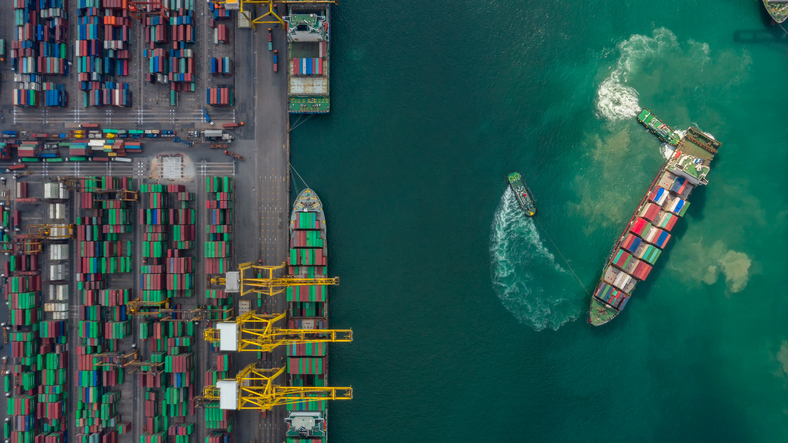Extra: Douglas Irwin on Talking about Trade and Commerce

Trade, and commentary on trade, is everywhere. Economists, opinion writers, podcasters, and your uncle are weighing in. There is a lot of concern and confusion.
Trade expert Douglas Irwin shares his insights. You’ll learn about the history of trade policy and its current complexities. Juliette Selgrin brings her curiosity and questions to the excellent conversation. What does freedom have to do with free trade? While the economic view about trade is quite clear, the messiness of the world is not. Douglas Irwin is a professor of economics at Dartmouth College and the author of several books including Clashing Over Commerce and Against the Tide: An Intellectual History of Free Trade.
Listen to the podcast here: Douglas Irwin On Talking About Trade and Commerce
How do you see the present and future world of trade unfolding? We hope you will comment below.
1. How does Douglas Irwin’s example of competition between Coke and Pepsi illuminate the difference between domestic and international trade? How might a better understanding of trade dynamics shape public perception and the role Congress plays in policymaking?
2. “Free trade” before and after Adam Smith held different meanings. Douglas Irwin suggests that another change in trade dynamics is taking place in the form of nationalism. How might a nationalistic trend impact global trade relationships and the nature of free trade in the future?
3. Douglas Irwin clarifies Adam Smith’s “defence of defence” as a reason to forego some portion of opulence. What frameworks could policymakers use to balance the tensions between free trade and national security? How might recent geopolitical tensions and AI developments complicate this?
4. Juliette Sellgren calls the government infighting “inside baseball”. How do the “white hats” versus “black hats” of the Commerce Department compare to the public divide of free traders versus protectionists? (Clyde Prestowitz, Trading Places: How We Allowed Japan to Take the Lead) How might particular trade issues about industry or trading partners impact this divide?
5. How does the economist's view of growing prosperity—the wealth of nations—differ from the lawyer-brokered approach that has defined much of U.S. trade policy? What strategies might economists employ to better teach and influence non-economists about the complex concepts of comparative advantage, the stakeholder impact of different protectionist measures, the balance of payments, currency exchange, and more?
Want more Great Antidote podcasts?
Christine McDaniel on Trade: A Tale of Two Presidents
Samuel Gregg on National Security and Industrial Policy
Ryan Yonk on the China Dilemma
Teaching activities from Alice Temnick:
Activity: Can we expect free trade?
Activity: How Does Trade Prevent Famine?
2. “Free trade” before and after Adam Smith held different meanings. Douglas Irwin suggests that another change in trade dynamics is taking place in the form of nationalism. How might a nationalistic trend impact global trade relationships and the nature of free trade in the future?
3. Douglas Irwin clarifies Adam Smith’s “defence of defence” as a reason to forego some portion of opulence. What frameworks could policymakers use to balance the tensions between free trade and national security? How might recent geopolitical tensions and AI developments complicate this?
4. Juliette Sellgren calls the government infighting “inside baseball”. How do the “white hats” versus “black hats” of the Commerce Department compare to the public divide of free traders versus protectionists? (Clyde Prestowitz, Trading Places: How We Allowed Japan to Take the Lead) How might particular trade issues about industry or trading partners impact this divide?
5. How does the economist's view of growing prosperity—the wealth of nations—differ from the lawyer-brokered approach that has defined much of U.S. trade policy? What strategies might economists employ to better teach and influence non-economists about the complex concepts of comparative advantage, the stakeholder impact of different protectionist measures, the balance of payments, currency exchange, and more?
Want more Great Antidote podcasts?
Christine McDaniel on Trade: A Tale of Two Presidents
Samuel Gregg on National Security and Industrial Policy
Ryan Yonk on the China Dilemma
Teaching activities from Alice Temnick:
Activity: Can we expect free trade?
Activity: How Does Trade Prevent Famine?